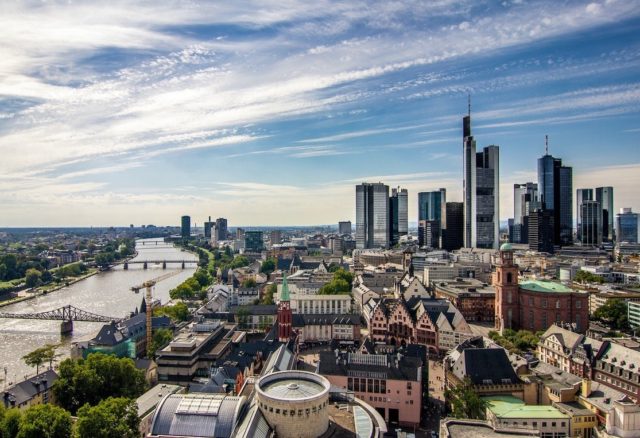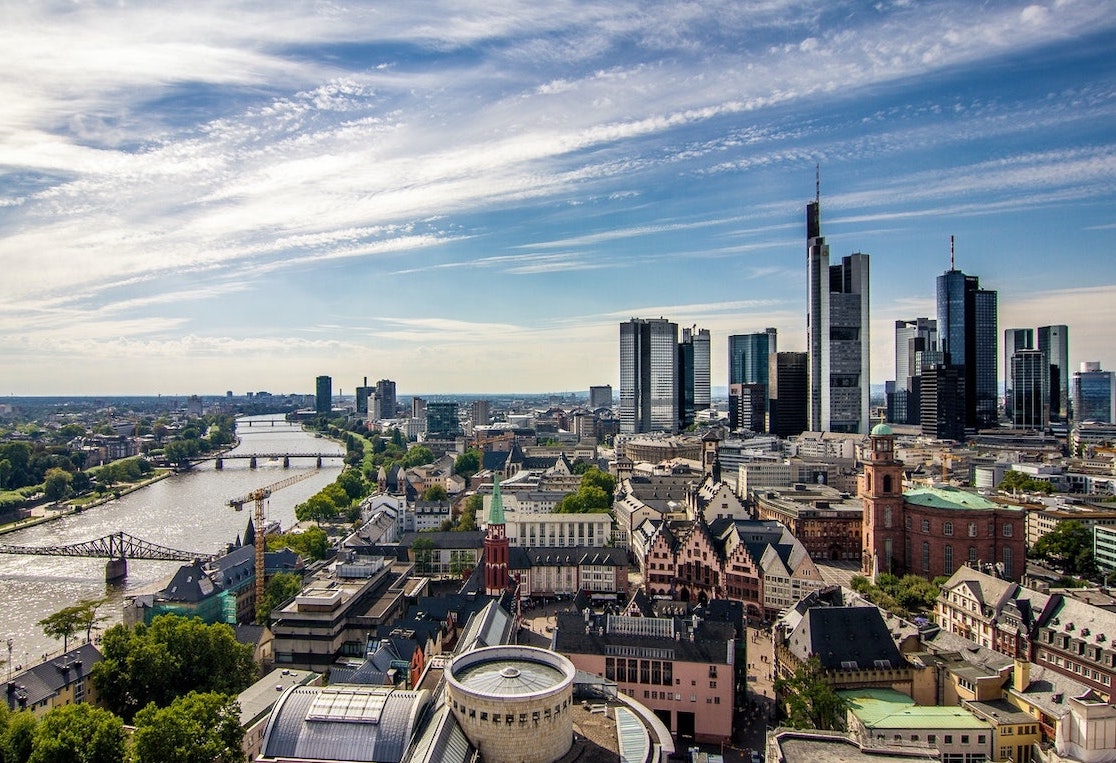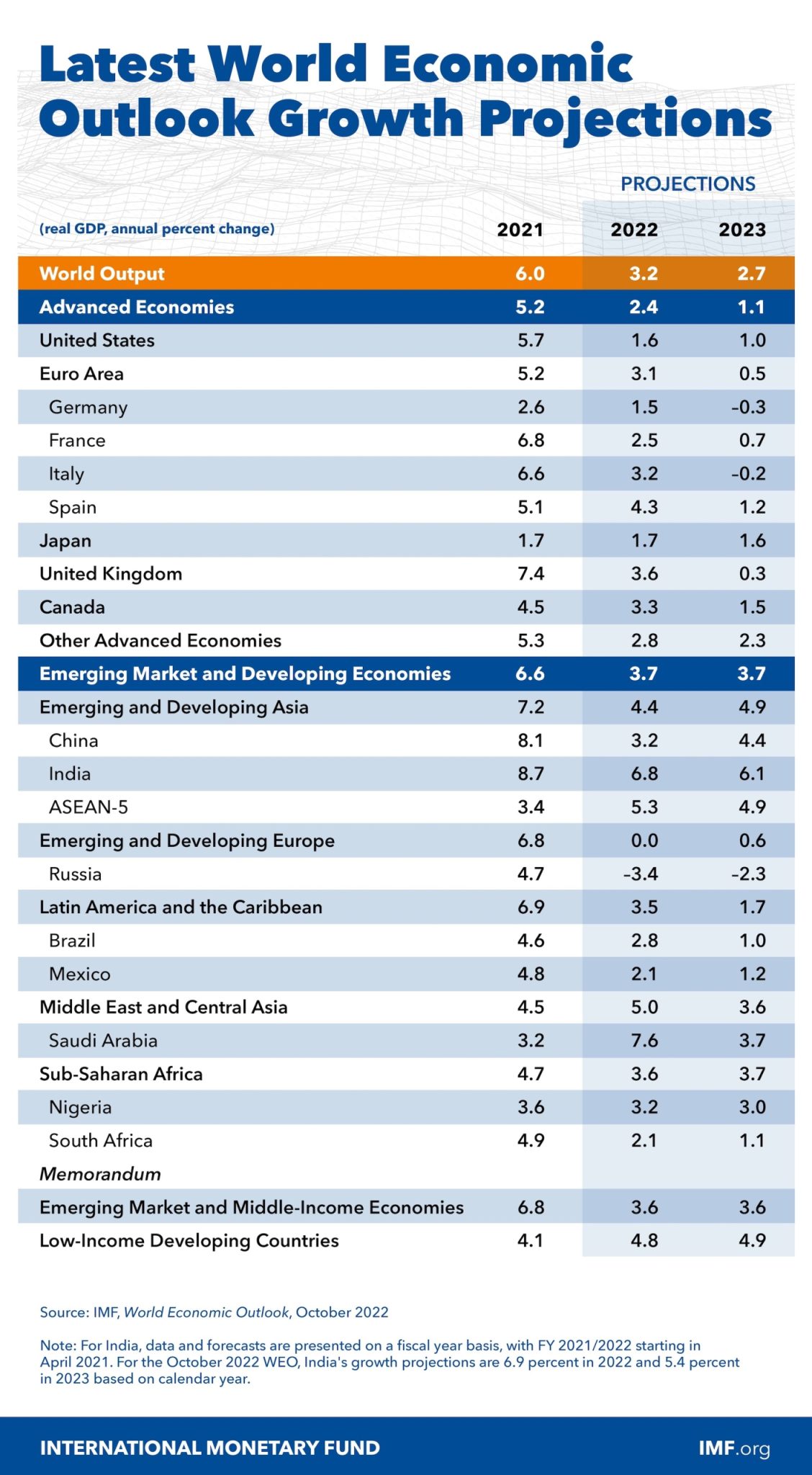
IMF World Economic Outlook Report Oct 2022: Global GDP to Grow 3.2% in 2022 & 2.7% in 2023, Avoid Global Recession Except for Germany, Italy & Russia
 Germany, 4th largest economy by GDP in 2020 Caproasia.com | The leading source of data, research, information & resource for investment managers, professional investors, UHNW & HNW investors, and advisors to institutions, billionaires, UHNWs & HNWs. Covering capital markets, investments and private wealth in Asia. How do you invest $3 million to $300 million? How do you manage $20 million to $3 billion of assets? Caproasia - Learn more This site is for accredited investors, professional investors, investment managers and financial professionals only. You should have assets around $3 million to $300 million or managing $20 million to $3 billion.
Germany, 4th largest economy by GDP in 2020 Caproasia.com | The leading source of data, research, information & resource for investment managers, professional investors, UHNW & HNW investors, and advisors to institutions, billionaires, UHNWs & HNWs. Covering capital markets, investments and private wealth in Asia. How do you invest $3 million to $300 million? How do you manage $20 million to $3 billion of assets? Caproasia - Learn more This site is for accredited investors, professional investors, investment managers and financial professionals only. You should have assets around $3 million to $300 million or managing $20 million to $3 billion. 
 IMF World Economic Outlook Report Oct 2022: Global GDP to Grow 3.2% in 2022 & 2.7% in 2023, Avoid Global Recession Except for Germany, Italy & Russia
IMF World Economic Outlook Report Oct 2022: Global GDP to Grow 3.2% in 2022 & 2.7% in 2023, Avoid Global Recession Except for Germany, Italy & Russia 16th October 2022 | Hong Kong
The International Monetary Fund (IMF) has released the IMF World Economic Outlook October Report 2022, providing key data & insights into 2022 & 2023 GDP forecast, with global GDP growth in 2022 forecast at 3.2%, 2023 at 2.7%, avoiding a global recession (major economy) except for Germany (2023 GDP: -0.3%), Italy (2023 GDP: -0.2%), and Russia (2022: -3.4%, 2023: -2.3%). The largest economy United States is expected to grow 1.6% in 2022 and 1% in 2023, and China GDP to grow 3.2% in 2022 and 4.4% in 2023. United Kingdom (UK) is expected to grow 3.6% in 2022 and 0.3% in 2023. In Asia, India is expected to grow 6.8% in 2022 and 6.1% in 2023, Japan is expected to grow 1.7% in 2022 and 1.6% in 2023. ASEAN-5, comprising of Singapore, Malaysia, Thailand, Indonesia, and the Philippines is expected to grow 5.3% in 2022 and 4.9% in 2023. Global inflation is forecast to increase from 4.7% in 2021 to 8.8% in 2022, and decrease to 6.5% in 2023 and to 4.1% in 2024. See below for Key findings & review, 2022 & 2023 IMF GDP forecast, and announcement. (GDP ~ Gross Domestic Product) | View: IMF World Economic Outlook Oct 2022 Report
Ads & Announcements





 (function(t,e,s,o){var n,c,l;t.SMCX=t.SMCX||[],e.getElementById(o)||(n=e.getElementsByTagName(s),c=n[n.length-1],l=e.createElement(s),l.type="text/javascript",l.async=!0,l.id=o,l.src="https://widget.surveymonkey.com/collect/website/js/tRaiETqnLgj758hTBazgdw_2FrTqLsoWjmVFwM5csk2vL4dBkVAR7ILuYTMMU8NYZ_2F.js",c.parentNode.insertBefore(l,c))})(window,document,"script","smcx-sdk");
(function(t,e,s,o){var n,c,l;t.SMCX=t.SMCX||[],e.getElementById(o)||(n=e.getElementsByTagName(s),c=n[n.length-1],l=e.createElement(s),l.type="text/javascript",l.async=!0,l.id=o,l.src="https://widget.surveymonkey.com/collect/website/js/tRaiETqnLgj758hTBazgdw_2FrTqLsoWjmVFwM5csk2vL4dBkVAR7ILuYTMMU8NYZ_2F.js",c.parentNode.insertBefore(l,c))})(window,document,"script","smcx-sdk"); “ Global GDP to Grow 3.2% in 2022 & 2.7% in 2023, Avoid Global Recession Except for Germany, Italy & Russia. Inflation is forecast to increase from 4.7% “
IMF World Economic Outlook Report – A Survey by the IMF staff usually published twice a year. It presents IMF staff economists’ analyses of global economic developments during the near and medium term.
The International Monetary Fund (IMF) monitors the international monetary system and global economic developments to identify risks and recommend policies for growth and financial stability. The Fund also undertakes a regular health check of the economic and financial policies of its 190 member countries. The International Monetary Fund (IMF) works to achieve sustainable growth and prosperity for all of its 190 member countries. It does so by supporting economic policies that promote financial stability and monetary cooperation, which are essential to increase productivity, job creation, and economic well-being. The IMF is governed by and accountable to its member countries. The IMF has 3 critical missions: furthering international monetary cooperation, encouraging the expansion of trade and economic growth, and discouraging policies that would harm prosperity. To fulfill these missions, IMF member countries work collaboratively with each other and with other international bodies.
IMF World Economic Outlook Report Oct 2022
 Germany, 4th largest economy by GDP in 2020
Germany, 4th largest economy by GDP in 2020 Key Findings:
- Global GDP growth in 2022: 3.2%, 2023 at 2.7%
- Global Recession: Avoiding a global recession (major economy) except for Germany (2023 GDP: -0.3%), Italy (2023 GDP: -0.2%), and Russia (2022: -3.4%, 2023: -2.3%).
- 2 Largest Economy: The largest economy United States is expected to grow 1.6% in 2022 and 1% in 2023, and China to grow 3.2% in 2022 and 4.4% in 2023.
- United Kingdom (UK) is expected to grow 3.6% in 2022 and 0.3% in 2023.
- In Asia, India is expected to grow 6.8% in 2022 and 6.1% in 2023, Japan is expected to grow 1.7% in 2022 and 1.6% in 2023.
- ASEAN-5, comprising of Singapore, Malaysia, Thailand, Indonesia, and the Philippines is expected to grow 5.3% in 2022 and 4.9% in 2023.
Key Review:
World Economic Outlook Report October 2022: GDP Forecast for 2022 & 2023
 World Economic Outlook Report October 2022: GDP Forecast for 2022 & 2023
World Economic Outlook Report October 2022: GDP Forecast for 2022 & 2023 Short Summary
Global economic activity is experiencing a broad-based and sharper-than-expected slowdown, with inflation higher than seen in several decades. The cost-of-living crisis, tightening financial conditions in most regions, Russia’s invasion of Ukraine, and the lingering COVID-19 pandemic all weigh heavily on the outlook. Global growth is forecast to slow from 6.0 percent in 2021 to 3.2 percent in 2022 and 2.7 percent in 2023. This is the weakest growth profile since 2001 except for the global financial crisis and the acute phase of the COVID-19 pandemic. Global inflation is forecast to rise from 4.7 percent in 2021 to 8.8 percent in 2022 but to decline to 6.5 percent in 2023 and to 4.1 percent by 2024. Monetary policy should stay the course to restore price stability, and fiscal policy should aim to alleviate the cost-of-living pressures while maintaining a sufficiently tight stance aligned with monetary policy. Structural reforms can further support the fight against inflation by improving productivity and easing supply constraints, while multilateral cooperation is necessary for fast-tracking the green energy transition and preventing fragmentation.
IMF World Economic Outlook Growth Downgrade – Announcement
The IMF issued a gloomy forecast for global growth, downgrading its forecast for 2023 in its World Economic Outlook report issued Tuesday in Washington, D.C. IMF Chief Economist Pierre-Olivier Gourinchas, Petya Koeva Brooks and Daniel Leigh answered questions on how the current turbulence will shape things in the months to come. The IMF chief economist opened with a broad look at the growth forecast for the next year, which is likely to be much lower than expected, due to several main factors.
“The global economy continues to face steep challenges. Shaped by three powerful forces, the Russian invasion of Ukraine, the cost of living crisis caused by persistent and broadening inflation pressures, and the slowdown in China,” Gourinchas said at a news conference launching the report at the IMF’s Annual Meetings.
Gourinchas also highlighted the continuing impact the war in Ukraine is having on the global energy crisis.
“The war in Ukraine is still raging and further escalation can exacerbate the energy crisis. Our October World Economic Outlook Report presents a risk assessment around or baseline projections. With 25% probability, global growth next year could slow down to below 2%, a historically low level. We’ve only had that five times since 1970.”
When asked about the continued risk new COVID-19 variants would have, Gourinchas said progress was being made, although he suggested China’s continued lockdown regulations are an exception.
“An important exception is China, where a different health policy path has been charted. And as a result, the country is still facing continued, localized, but important sometimes lockdowns. And that’s something that is weighing down on Chinese economic activity in our in our baseline forecasts because of the continuation of zero-covid policy, ” said the IMF’s Chief Economist.
IMF Economist Petya Koeva Brooks provided new insight on the impact that rising inflation and the energy crisis is having the Italian economy.
“We are expecting Italy to enter a technical recession in the coming quarters. And a big impact has come from the energy crisis and the elevated inflation and the adverse impact on real incomes. So when it comes to the risks to this outlook, they are getting very much on the downside. And again, they are related to even further impact coming from energy markets,” she said.
The panel was asked to turn their attention to the Horn of Africa, where there is a severe humanitarian crisis. In addition to high debt levels and a strengthening US dollar, IMF Economist Daniel Leigh highlighted low vaccination rates in the region as one of the factors in the continuing financial stress caused by the pandemic.
“It is a region very severely affected by the war in Ukraine. The food, fuel and fertilizer price spike is having a negative effect on agriculture and a broad part of the economy. On top of that, this is one of the parts of the world where the COVID shock is still really severe in terms of the very low vaccination rates, 26% only in sub-Saharan Africa, compared to 66% in the rest of the world. Only 2% have a booster compared to a third to a half in the rest of the world. So on top of that, the global slowdown means less demand for the products of the region. And then on top of that, the higher interest rates, low growth means that two thirds of the countries in the regions are facing stress or debt distress. So this is why the attention here is very much on providing relief, also in terms of supporting the common framework to avoid the debt crisis from spreading,” Said Daniel Leigh.
2021 Data Release 2020 List of Private Banks in Hong Kong2020 List of Private Banks in Singapore 2020 Top 10 Largest Family Office2020 Top 10 Largest Multi-Family Offices2020 Report: Hong Kong Private Banks & Asset Mgmt - $4.49 Trillion2020 Report: Singapore Asset Mgmt - $3.48 Trillion AUM Register Below Latest 2022 data & reports, insights & news Every Saturday & Sunday 2 pm Direct to your inbox Save 2 to 8 hours per week. Organised for success For Investors | Professionals | Executives New to Caproasia? Join 10,000 + Learn More | Sign Up Today Caproasia.com | Caproasia Access 2022 Events | TFC - Find Services Grow Business | Contact Us For CEOs, Heads, Senior Management, Market Heads, Desk Heads, Financial Professionals, Investment Managers, Asset Managers, Fund Managers, Hedge Funds, Boutique Funds, Analysts, Advisors, Wealth Managers, Private Bankers, Family Offices, Investment Bankers, Private Equity, Institutional Investors, Professional Investors Get Ahead in 60 Seconds. Join 10,000 + Save 2 to 8 hours weekly. Organised for Success. Subscribe / Sign Up / Contact Us Sign Up / Subscribe:
Mailing ListFree TrialPromo $20 MonthlyPromo $180 YearlyInvestor $680 YearlyProfessional $680 YearlyExecutive $2,000 Yearly
Interests / Events / Summits / Roundtables / Networking:
Private WealthFamily OfficePrivate BankingWealth ManagementInvestmentsAlternativesPrivate MarketsCapital MarketsESG & SICEO & EntrepreneursTax, Legal & RisksHNW & UHNWs Insights
Your Name*
Company*
Job Title*
Email 1 (Work / Personal)*
Email 2 (Work / Personal)
Contact No.
Country
Your Message (leave blank if none)
Owl Media Group takes pride in providing social-first platforms which equally benefit and facilitate engagement between businesses and consumers and creating much-needed balance to make conducting business, easier, safer, faster and better. The vision behind every platform in the Owl Media suite is to make lives better and foster a healthy environment in which parties can conduct business efficiently. Facilitating free and fair business relationships is crucial for any thriving economy and Owl Media bridges the gap and open doors for transparent and successful transacting. No advertising funds influence the functionality of our media platforms because we value authenticity and never compromise on quality no matter how lucrative the offers from advertisers may seem.